John A. Hodge
Reconfigurable-Metasurface-Aided Multi-State Generalized Polarization-Space Modulation for Next-Generation Wireless Communications
Mar 23, 2021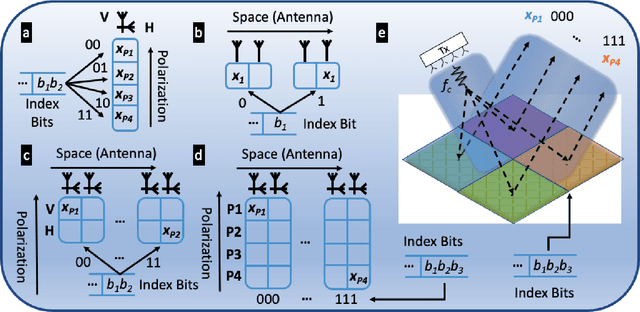
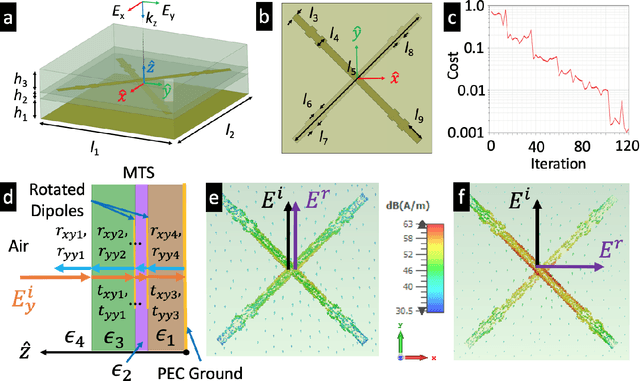
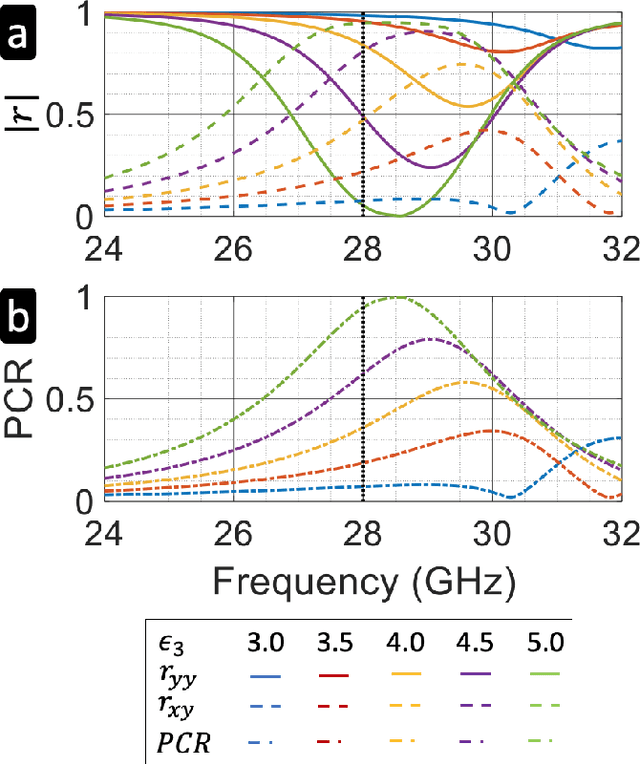
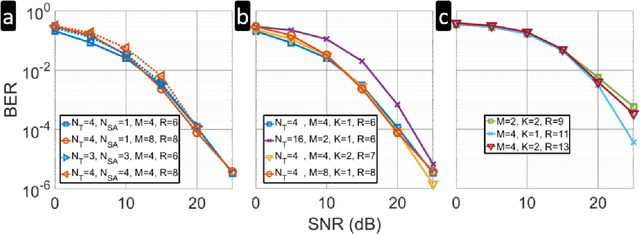
Abstract:We propose a low-cost reconfigurable metasurface transmitter to implement generalized polarization-space modulation (GPSM) that has been proposed for next-generation wireless communications. Unlike conventional multiple-input multiple-output GPSM, our electromagnetically-compliant, reduced form-factor design using Barium-Strontium-Titanate film yields more than two polarization states. Full-wave simulations show our optimized design achieves 0.08-0.95 polarization conversion ratio with 5% bandwidth at 28 GHz and bit error rates comparable or better than conventional systems.
Deep Inverse Design of Reconfigurable Metasurfaces for Future Communications
Jan 22, 2021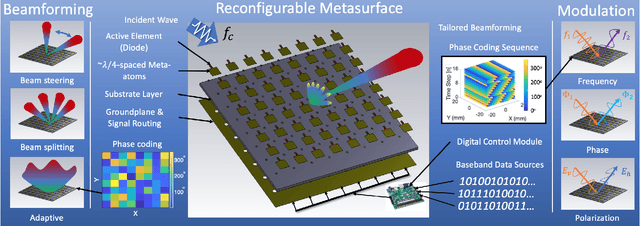
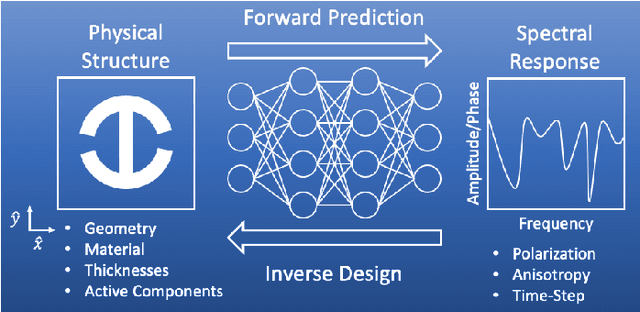

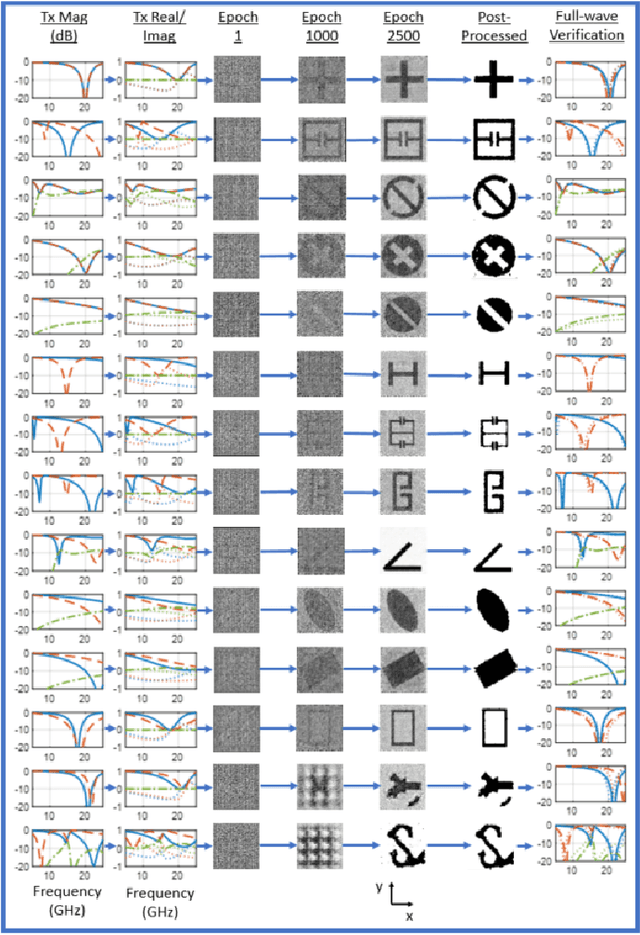
Abstract:Reconfigurable intelligent surfaces (RIS) have recently received significant attention as building blocks for smart radio environments and adaptable wireless channels. By altering the space- and time-varying electromagnetic (EM) properties, the RIS transforms the inherently stochastic nature of the wireless environment into a programmable propagation channel. Conventionally, designing RIS to yield the desired EM response requires trial-and-error by iteratively investigating a large possibility of various geometries and materials through thousands of full-wave EM simulations. In this context, deep learning (DL) techniques are proving critical in reducing the computational cost and time of RIS inverse design. Instead of explicitly solving Maxwell's equations, DL models learn physics-based relationships through supervised training data. Further, generative adversarial networks are shown to synthesize novel RIS designs not previously seen in the literature. This article provides a synopsis of DL techniques for inverse RIS design and optimization to yield targeted EM response necessary for future wireless networks.
 Add to Chrome
Add to Chrome Add to Firefox
Add to Firefox Add to Edge
Add to Edge